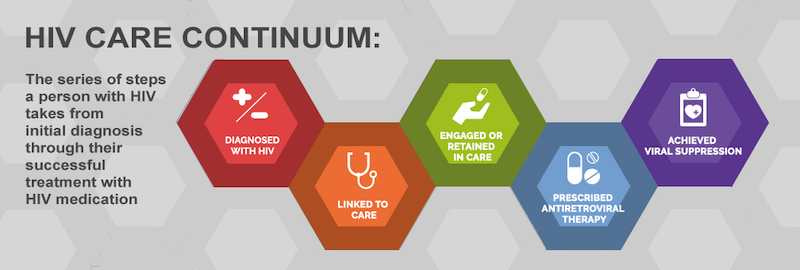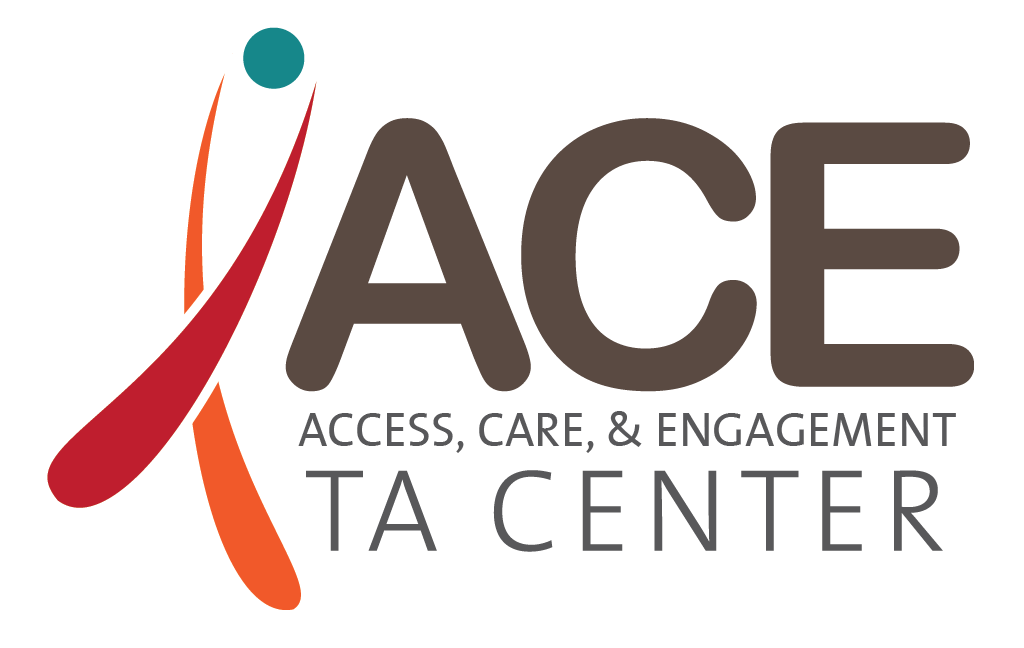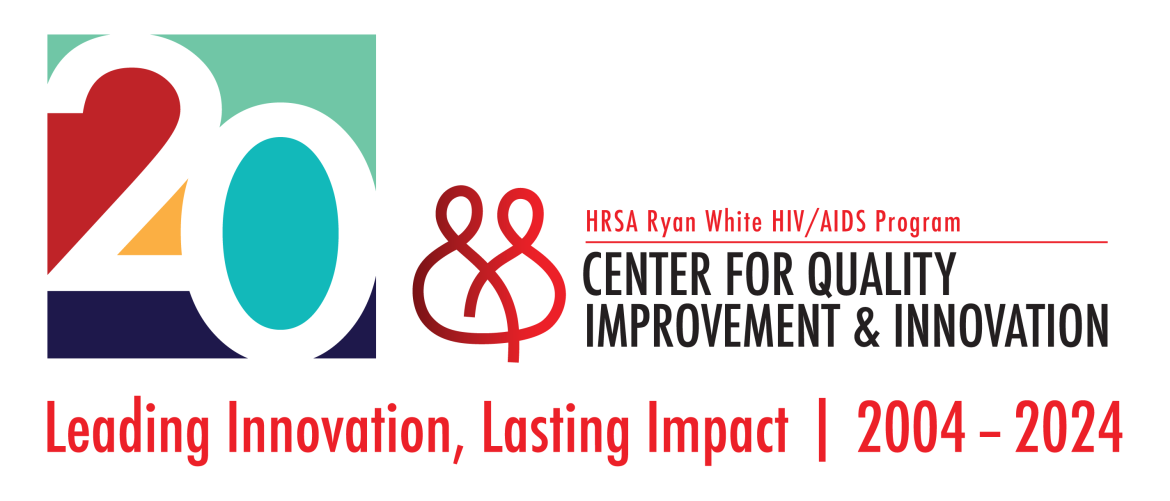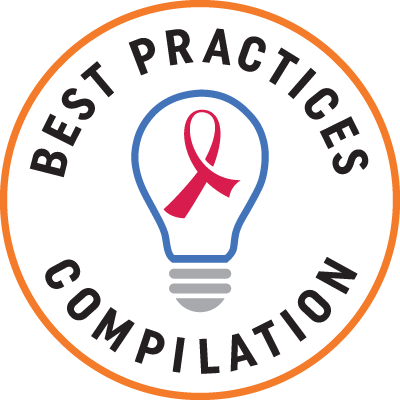
HIV Care Continuum
On
The HIV care continuum is a representation of the extent to which individuals living with HIV are diagnosed, engaged in care and benefiting from antiretroviral therapy in terms of full viral suppression (undetectable lab values). The value of the continuum in managing the HIV epidemic is compelling: individuals engaged in care can manage HIV as a chronic condition and simultaneously reduce the risk of transmitting the virus to others.

Best Practices
- IHIP
- IHIP
Documents
- ACE TA Center
Trainings
- HRSA HIV/AIDS Bureau (HAB)
Webinars
- HRSA HIV/AIDS Bureau (HAB)
Technical Assistance
 Capacity building for the RWHAP community to navigate the changing health care landscape and help people with HIV to access and use their health coverage to improve health outcomes. Project period: 2022-2025.
Capacity building for the RWHAP community to navigate the changing health care landscape and help people with HIV to access and use their health coverage to improve health outcomes. Project period: 2022-2025.- The central hub of the AETC Program, the clinical training arm of the RWHAP, through HIV curricula, technical support to regional AETCs on practice transformation and best practices, and housing of all AETC-developed tools for HIV clinical staff. Project period: 2019-2024.

TA/training for RWHAP agencies to improve the quality of HIV/AIDS care they provide. Project period: 2020-2024.
- Assessment of how, where, and why dissemination products are accessed and used, as well as the utility and performance of the products created under SPNS- and TA-funded initiatives. Project period: 2022-2025.
 Initiative documenting best practice strategies and interventions that have been shown to improve HIV outcomes in a "real world" setting and can be replicated by other programs. Project period: 2021-2024.
Initiative documenting best practice strategies and interventions that have been shown to improve HIV outcomes in a "real world" setting and can be replicated by other programs. Project period: 2021-2024.- Interactive data tool to visualize the reach, impact, and outcomes of the RWHAP. HRSA offers office hours and webinars to help use the tool.
News & Updates
Immediate ART: Quick Guide for Clinicians
Need to drill down further?
Explore the sub-topics of this category